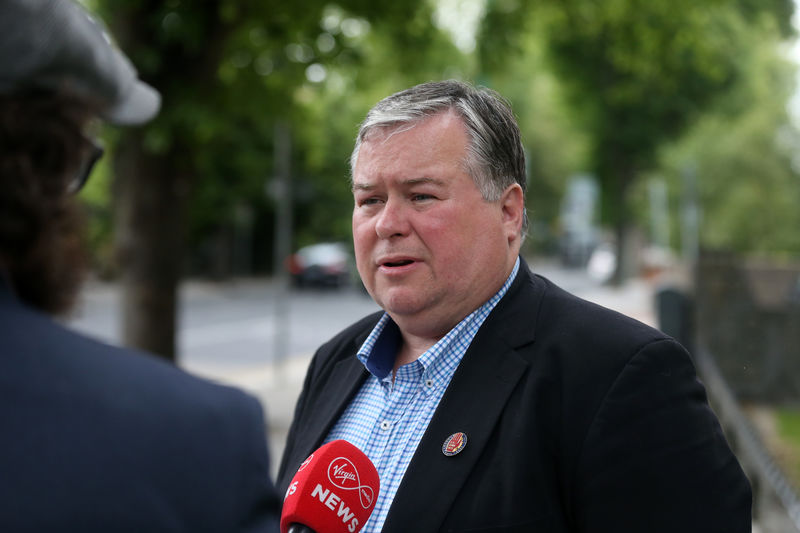In the storm of this public health crisis, we’ve seen a significant shift away from a four-decade market-centred economic orthodoxy, and towards some of the principles and tools associated with Europe’s post-war reconstruction.
This contrasts sharply with the 2008-2010 banking crisis, when political, economic and, initially, social consensus swung quickly behind the politics and economics of austerity.
Driven in part by public health imperatives, and accompanied by an inspiring spirit of social solidarity, strong support for a State-led response to the massive economic challenges of the Covid-19 crisis has emerged in Ireland and beyond.
Indeed, Pope Francis himself called for a post-war spirit of solidarity in his Easter message last weekend.
Over the last few weeks, we’ve seen what can be achieved when the State mobilises financial, organisational and human resources for the common good, when people work together collectively, and when citizens have equal access to essential goods and services.
The next challenge will be to embed these principles into our economic, social and business model on the other side of the emergency.
There are strong reasons to believe that we may be experiencing a ‘1945 moment,’ where the enormity of loss and sacrifice, the scale of economic devastation, and fatigue with austerity, combine to create the conditions for a radical shift in European public policy.
And the sheer scale of the coming economic storm means we need a fundamentally different approach to the one adopted during the banking crisis.
As Irish government formation efforts intensify, any unity of national purpose will, at the very least, require a progressive counterweight to the centre-right if we are to avoid a repeat of the mistakes of the past.
This is also a challenge to the left, as the development and display of untested ‘alternatives’ will be as irrelevant to today’s citizens as they are to tomorrow’s historians.
That means trade unions, civil society organisations and others must stand ready to play their part, together, in the implementation of practical solutions.
Recent events suggest that a genuinely new social and political consensus is possible on the basis of:
- A high-productivity, high-skills competitive economy supported by public investment in education and infrastructure
- An economy where all workers can expect an income capable of supporting a decent standard of living
- Social solidarity, in the form of a strong safety net to support those unable to work
- A social wage, with essential public services provided on a universal basis
- Flatter wealth distribution
- Supported by adequate taxation, social dialogue, collective bargaining, and legal rights to equality and civil and political freedoms.
Without the US leadership displayed in 1945, the responsibility for rebooting our economies now rests squarely with the leaders of Europe and its nations.
In this context, the makeshift deal testily hammered out by EU finance ministers last week is utterly inadequate to the scale of the challenges before us.
The distinction they made – between debt directly associated with the virus and debt that isn’t – may look like fancy footwork today, but it will seem laughable when the full cost of economic recovery emerges.
Once the health crisis abates enough for us to properly assess that damage, the priority will be to kick-start our economies and maintain living standards, not to classify and pay back debt.
This will require effort and imagination from politicians, the financial sector, public services, businesses, civil society, and representative organisations.
Just as in the post-war period, the strongest available tool of recovery will be investment in infrastructure. Critical public services like health, education and childcare will need to recoup. Jobs permanently lost in the Covid crisis will have to be replaced. Incomes must be supported in the meantime.
That’s before we step up our response to the climate crisis, tackle the pre-coronavirus shortcomings in housing and other public services, or address the reasonable expectation that recently-introduced universality in public provision will be maintained and expanded.
The crisis has also exposed the vulnerability of people in low-paid and insecure employment, while its impact on the organisation of work – in particular the rapid shift from office-based to remote working – holds huge potential for productivity, public services, regional balance, quality of life, and the environment.
In recent weeks, we have witnessed some extraordinary things, not least the loss and fear that the coronavirus has inflicted.
We’ve also seen the inspiring bravery of our health and other essential workers, the many thousands of volunteers who have put themselves forward, and a community spirit that has both helped limit the spread of the virus and found new ways to socialise and support others.
If we build on that, our country and our continent can become more secure, more equal, more united, and better prepared for future shocks.
If we fail, we risk a descent into long-term economic hardship and political chaos, here and across the European Union.





